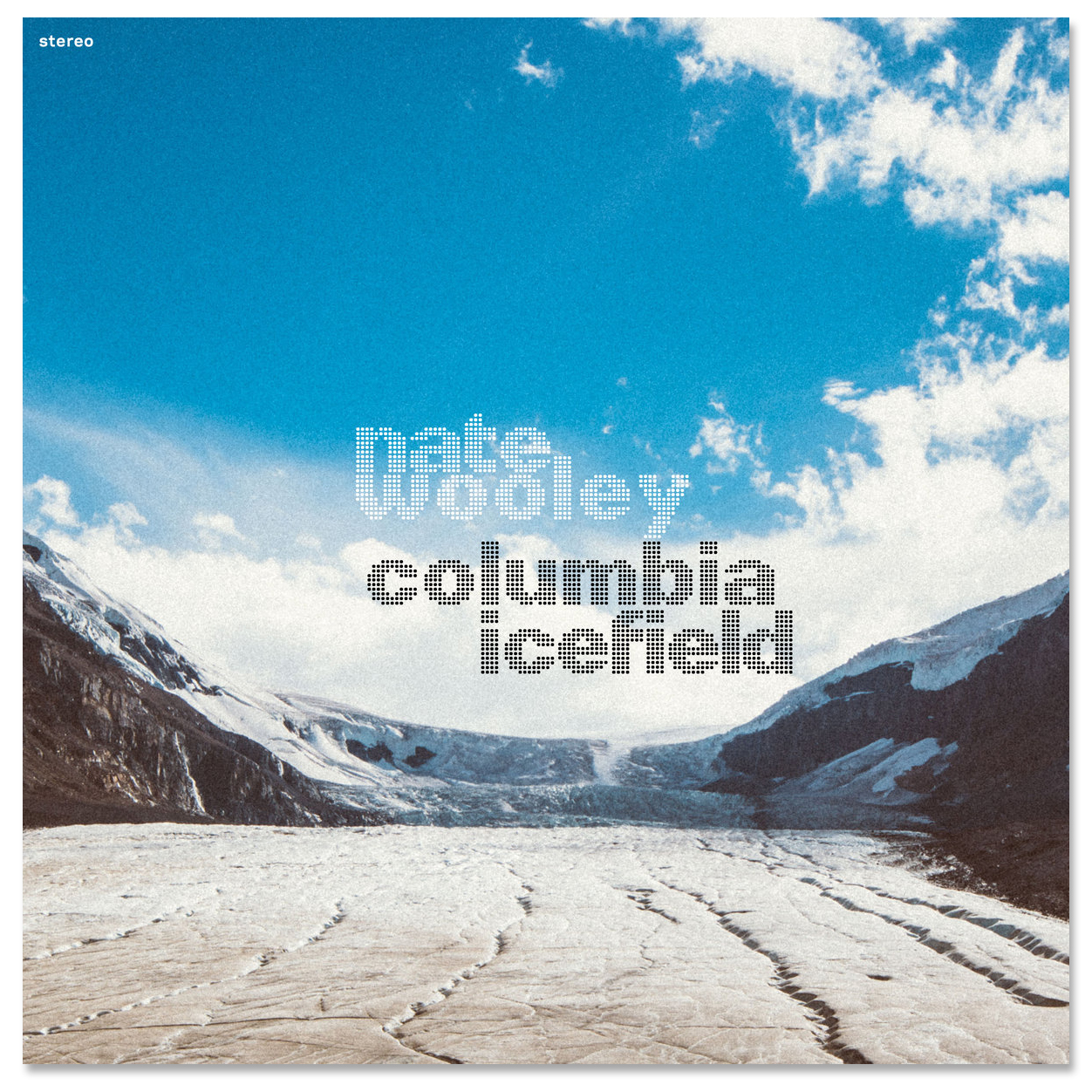Columbia Icefield is a monumental work. From strict composition to improvisation, this is an attentive and witty musical mystery play. Nate Wooley and his quartet have created an absorbing and imposing work of immense proportions.
Translation: Aleksandra Szkudłapska
Nate Wooley often records epic, monolithic works, whose very concept and execution are enough to attract attention. Suffice it to mention Syllables or Seven Storey Mountains (part five is to include 19 musicians, part six as many as 30!), but the mighty sound often results from a combination of line-up and idea. This is also the case of Columbia Icefield, apparently inspired by the title glacier (which might just be an apt illustration to the music), but also by Ellen Fullman’s Long String Instrument, as the trumpeter mentioned in a recent interview. The monolithic nature of this album is further backed by the superb constellation of experienced and open-minded musicians accompanying Wooley: guitarist Mary Halvorson, who last year released her superb Code Girl (but also two Thumbscrew records), Susan Alcorn on pedal steel guitar (she plays, e.g., in Halvorson’s octet but also offers her renditions of Astor Piazolla or improvises with the greatest stars of the U.S. jazz scene) and drummer Ryan Sawyer. Together, they recorded almost an hour of music divided into three pieces – for the most part composed, but allowing ample room for improvisation. There’s just so much going on here that I’d be lost for words if I tried to comment on the progress of individual tracks – an aspect present in most reviews. The greatest challenge, though, is trying to take in the bigger picture. And since we’re about to enter a vast icefield, I have decided to award Wooley five badges of merit for the idea.
First of all, Columbia Icefield draws you in with the meticulous division of roles assigned to musicians – Wooley may have composed the whole with these particular people in mind, but the line-up is far from obvious: a wind instrument, drums and two string instruments. The composed parts brilliantly divide the spotlight between all four artists. This may already be appreciated in the opening of “Lionel Trilling”, where Halvorson and Alcorn pursue a passionate dialogue where each plays in a different metre. Percussion appears three minutes into the whole, and we have to wait for minute seven to hear Wooley’s trademark, spatial trumpet sound. The same may be said for “Seven in the Woods”, where the sonorous highlights of guitars and percussion (Sawyer does not take over the structure, but models the sound of drums by delicately scraping his broomsticks against the background of resonating guitars) sound very selective, creating an abstract, yet concise sonic tissue. Even when Wooley’s trumpet lyrically moves into the foreground.
Second, Wooley’s skilful use of his instrument is crucial here. Even though the album is his original idea, it is not dominated by his overbearing presence or ego: Wooley stands firmly in line with the other musicians. If he does move to the foreground, it is only because there’s plenty of room there for others – like in the finale of “Seven in the Woods”, when the rising tension is driven by Halvorson and the cascading drums right behind her. At the same time, Wooley showcases the whole spectrum of his instrument: its standard sound is merely 1/3 of the material, but it appears throughout the entire album in its more unconventional incarnations – when it resembles snow crunching underfoot (sic!), low wheezing that scratches the ears, double-bass at the end of the second piece or a distorted, peculiar, throaty growl in “With Condolences”.
Third, the narrative is growing denser with every minute, and the four musicians offer a true tour-de-force of building tension. The pieces often begin with a very relaxing sound, which gradually becomes more and more disturbing. The Halvorson/Alcorn duo offers an almost meditative opening, but the finale is by no means as obvious and delicate. The first seconds of “Seven in the Woods” sound almost like an ambient track with a subtle trumpet in-between the guitars, but the deeper you enter this forest, the more the atmosphere thickens.
Four, this quartet tells a captivating story through a dialogue of two duos. In “Lionel Trilling”, the guitarists gradually build the atmosphere, contrasted with Wooley and Sawyer’s raw and slightly destructive sound. In minute 13, the musicians return to the initial motif, and the sonic jaunt begins to resemble a march: the wheezing, electrified trumpet provides the rhythm alongside the more and more powerful drums, with the subtle guitars serving as a counterpoint. As a result, the tone colours, dynamics and tensions between musicians are mutually balanced out.
Finally, badge number five goes to the multitude of contexts smuggled between the lines: from the title of the first track, which sends us to a prominent 20th-century American literary critic and intellectual, to the story behind “Seven in the Woods”, which I strongly recommend you Google for yourselves. I personally was most moved by the finale of “With Condolences”, where Sawyer chants John Berryman’s poem Dream Song 42: O journeyer, deaf in the mould, insane. Like a preacher, he shouts out word after word against thundering music, but nothing explodes here, and we are left suspended in uncertainty.
And this is another advantage of this record: a coherent, engrossing, epic narrative. Three pieces, almost an hour of music; three rich, multi-layered suites telling a musically complex story. It is the brilliant interplay between the musicians that keeps it all together, but also the individual highlights, such as the opening guitar dialogue, the lyrical trumpet in “Seven in the Woods”, or the sparse yet memorable guitar ostinato in “With Condolences”, present until the very end of the piece – definitely one of the strongest points of the album.
Columbia Icefield is a monumental work. Its geographical reference could probably broaden this context, but the music itself suffices to fully absorb the listener with its precision, meticulous finish and brilliant harnessing of the skills of individual artists, whose roles are assigned in a very democratic manner. From strict composition to improvisation, this is an attentive and witty musical mystery play. Nate Wooley and his quartet have created an absorbing and imposing work of immense proportions.
Nate Wooley, Columbia Icefield, Northern Spy Records.
SŁUCHAJ: 🎶 Spotify, 🎶 Tidal, 🎶 Deezer, 🎶 Apple Music




